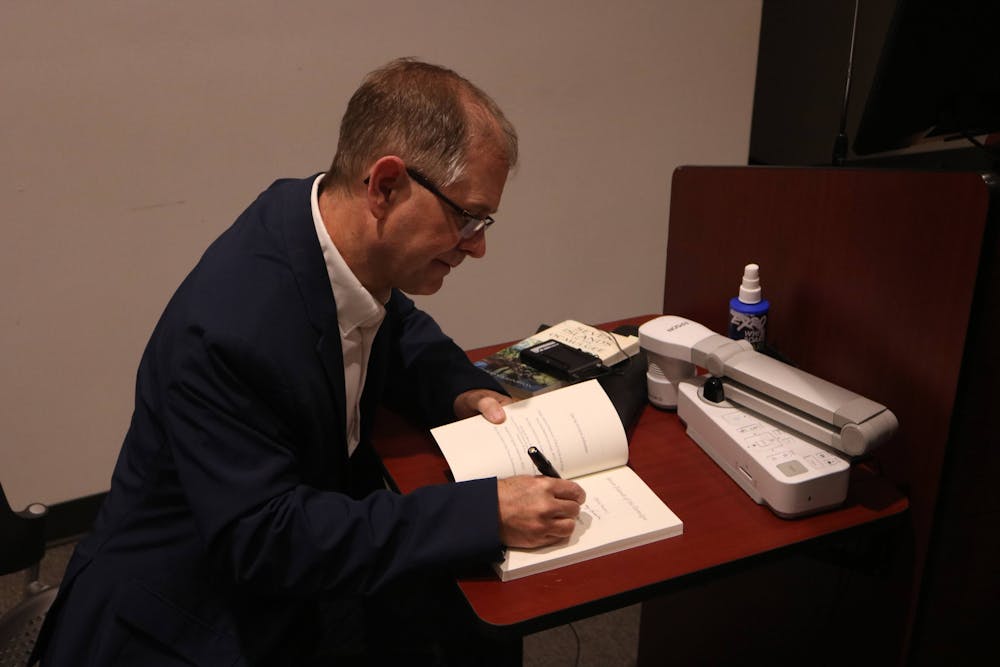Gordon Johnston has long been an avid fan of water and the calming effect it has on him. As a child, he and his family would frequent the Flint and Chattooga Rivers. He said that in college he took a whitewater canoeing class that taught him how to read the current and how to navigate rapids without flipping. Since then he has been hooked, regularly canoeing and kayaking ever since.
On March 22, Johnston unveiled his first book of short stories, “Seven Islands of the Ocmulgee: River Stories,” which he has been writing since 2012. The book is a collection of fictional stories centered on people and their interactions with the Ocmulgee River.
“There’s a sort of spiritual thread that runs through a lot of the stories,” Johnston said. “There are these mystical moments that happen along the river.”
Many of the stories in the book exhibit that spirituality through the situations that befall the characters. One story is about a kayaker’s eyesight that is distorted, then restored by a “mysterious” woman who finds him on the river after he hit his head on a rock, while another is about a river baptism in the waters of the Ocmulgee, a common practice two generations ago that has since become rarer.
Johnston’s observations while paddling every mile of the Ocmulgee helped him create the vivid scenes that each story employs. One day when kayaking on the Ocmulgee, Johnston encountered a child seemingly stranded on a rock in the middle of the river, worrying Johnston that maybe the child had been abandoned or was lost. Minutes later, he saw the kid’s father and moved along down the river. Despite how the real-life story ended, however, that image stuck with him, he said, and it became the beginning of a story in the book, in which a kayaker finds a child alone on a rock in the middle of a rapid.
Other, smaller details from his travels are speckled throughout the book, like the careful description of a pair of thigh-high boots a character wears into the river and how they stick like a suction cup to the thick, dark mud beneath the surface. While a short mention of boots would have sufficed, Johnston adds to the imagery with an eye for quintessential details of the southern wilderness, making each character increasingly familial to the reader.
His stories also allude to the Yuchi, Hitchiti, and other Muskogean-speaking peoples that inhabited the area for centuries until they were forced out in 1825. His expertise in this particular field comes from his time as an artist-in-residence at the Ocmulgee Mounds National Historical Park. While there, he studied the park’s archives and artifacts while taking note of the beauty of the watershed, which would eventually become the spine of his new book.
Johnston said that the characters in his stories often seemed to write themselves as they were being put down to paper, although he said that he never tried to model characters after himself or people he knew. The task of getting to know them took time, but he said that it was up to him to pay attention and listen to them during the writing process.
“I hear the characters’ voices in my head and they feel very real to me,” Johnston said. “I feel like they’re a part of me.”
Gabriel Kopp '26 is double majoring in Journalism and Law and Public Policy at Mercer University. He has written for The Cluster since he started at Mercer, and currently works as editor-in-chief. When he isn't completing a Washington Post crossword, he enjoys going for runs around Macon and reading The New York Times or the AJC while sipping coffee.





